7 start with N start with N
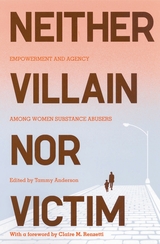
Essays explore a range of topics, including the many ways that women negotiate the illicit drug world, how former drug addicts manage the more intimate aspects of their lives as they try to achieve abstinence, how women tend to use intervention resources more positively than their male counterparts, and how society can improve its response to female substance abusers by moving away from social controls (such as the criminalization of prostitution) and rehabilitative programs that have been shown to fail women in the long term.
Advancing important new perspectives about the position of women in the drug world, this book is essential reading in courses on women and crime, feminist theory, and criminal justice.

A timely philosophical treatment of the current wave of international terrorism and armed conflicts around the world, New Terror, New Wars explores the ethical significance of September 11, and its aftermath. From the nationalistic violence that reigned over the last century, to the amorphous terrors without national boundaries characterizing the opening of this new century, Gilbert leads the way through some of the difficult terrain that has brought the world to these troubling crossroads. He examines the causes of new wars as they are made manifest in the politics of identity, he questions when military force is justified in the pursuit of political goals. He asks whether the "just war" theory is adequate for evaluating and then regulating contemporary conflicts. He deals with the core issues of traditional conflict: self-defense, the conduct of war, hatred and revenge, but also with newer forms, such as conflict in the guise of "humanitarian intervention."
The hopeful conclusion to all wars is, of course, the restoration of peace. Gilbert concludes with a philosophical investigation of not only how to end them, but also how to resolve the conflicts that gave rise to them in the first place and how to produce the conditions in which they are unlikely to occur again—reminding us that the end to a "just war" must be a "just peace" and outlining what the nature of that just peace should be. New Terror, New Wars will be required reading for all those concerned with the ethical issues that inevitably arise from armed conflicts in whatever dire form they may take.
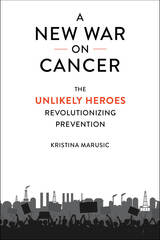
That was the question that motivated Kristina Marusic’s revelatory inquiry into cancer prevention. In searching for answers, she met remarkable doctors, scientists, and advocates who are upending our understanding of cancer and how to fight it. They recognize that we will never reduce cancer rates without ridding our lives of the chemicals that increasingly trigger this deadly disease.
Most never imagined this role for themselves. One scientist grew up without seeing examples of Indian-American women in the field, yet went on to make shocking discoveries about racial disparities in cancer risk. Another leader knew her calling was children’s health, but realized only later in her career that kids can be harmed by invisible pollutants at their daycares. Others uncovered surprising links between cancer and the everyday items that fill our homes and offices.
For these individuals, the fight has become personal. And it certainly is personal for Berry, a young woman whose battle with breast cancer is woven throughout these pages. Might Berry have dodged cancer had she not grown up in Oil City, Pennsylvania, in the shadow of refineries? There is no way to know for sure. But she is certain that, even with the best treatment available, her life was changed irrevocably by her diagnosis. Marusic shows that, collectively, we have the power to prevent many cases like Berry’s. The war on cancer is winnable—if we revolutionize the way we fight.
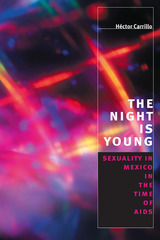
Carrillo finds that young Mexicans today grapple in a variety of ways with two competing tendencies. On the one hand, many seek to challenge traditional ideas and values they find limiting. But they also want to maintain a sense of Mexico's cultural distinctiveness, especially in relation to the United States. For example, while Mexicans are well aware of the dangers of unprotected sex, they may also prize the surrender to sexual passion, even in casual sexual encounters—an attitude which stems from the strong values placed on collective life, spontaneity, and an openness toward intimacy. Because these expectations contrast sharply with messages about individuality, planning, and overt negotiation commonly promoted in global public health efforts, Carrillo argues that they demand a new approach to AIDS prevention education in Mexico.
A Mexican native, Carrillo has written an exceptionally insightful and accessible study of the relations among sexuality, social change, and AIDS prevention in Mexico. Anyone concerned with the changing place of sexuality in a modern and increasingly globalized world will profit greatly from The Night Is Young.
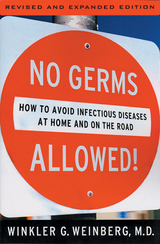
AIDS, tuberculosis, hepatitis, chickenpox, malaria, Lyme disease, salmonella, strep throat-no matter where you go or where you live, you are at risk from infectious disease. But there are ways you can protect yourself and your family!
The revised and expanded edition of this classic guide explains what you need to know to keep the germs away. From the infections of daily life, like the common cold and traveler's diarrhea, to dangerous, rare diseases such as plague, hantavirus, and invasive strep bacteria, to recent threats of mad cow disease, West Nile virus, SARS, and bioterrorism, this unique guide tells you:
- your chances of getting sick
- simple precautions you can take
- which vaccinations and shots are worthwhile
- how to avoid catching infections in the hospital
- special precautions to take if you are pregnant
- how to ward off infections even if you have chronic health problems or are HIV positive
- how to keep well while traveling
- what to eat-and not eat-on the road
- symptoms that signal trouble
- what illnesses you can get from bug bites and animals
- how to prevent sexually transmitted diseases
- who should get flu shots and why
- why you should see your doctor before you get sick
Dr. Winkler G. Weinberg lets you know what you need to worry about and what you don't.
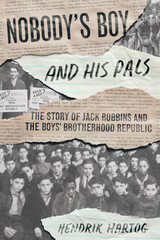
In 1914, social reformer Jack Robbins and a group of adolescent boys in Chicago founded the Boys’ Brotherhood Republic, an unconventional and unusual institution. During a moral panic about delinquent boys, Robbins did not seek to rehabilitate and/or punish wayward youths. Instead, the boys governed themselves, democratically and with compassion for one another, and lived by their mantra “So long as there are boys in trouble, we too are in trouble.” For nearly thirty years, Robbins was their “supervisor,” and the will he drafted in the late 1950s suggests that he continued to care about forgotten boys, even as the political and legal contexts that shaped children’s lives changed dramatically.
Nobody’s Boy and His Pals is a lively investigation that challenges our ideas about the history of American childhood and the law. Scouring the archives for traces of the elusive Jack Robbins, Hendrik Hartog examines the legal histories of Progressive reform, childhood, criminality, repression, and free speech. The curiosity of Robbins’s story is compounded by the legal challenges to his will, which wound up establishing the extent to which last wishes must conform to dominant social values. Filled with persistent mysteries and surprising connections, Nobody’s Boy and His Pals illuminates themes of childhood and adolescence, race and ethnicity, sexuality, wealth and poverty, and civil liberties, across the American Century.

Prior to its market debut, Gardasil seemed to offer female empowerment, touting protection against HPV and its potential for cervical cancer. Gottlieb questions the marketing pitch’s vaunted promise and asks why vaccine marketing unnecessarily gendered the vaccine’s utility, undermining Gardasil’s benefit for men and women alike. This book demonstrates why in the ten years since Gardasil’s U.S. launch its low rates of public acceptance have their origins in the early days of the vaccine dissemination. Not Quite a Cancer Vaccine addresses the on-going expansion in U.S. healthcare of patients-as-consumers and the ubiquitous, and sometimes insidious, health marketing of large pharma.
READERS
Browse our collection.
PUBLISHERS
See BiblioVault's publisher services.
STUDENT SERVICES
Files for college accessibility offices.
UChicago Accessibility Resources
home | accessibility | search | about | contact us
BiblioVault ® 2001 - 2024
The University of Chicago Press









